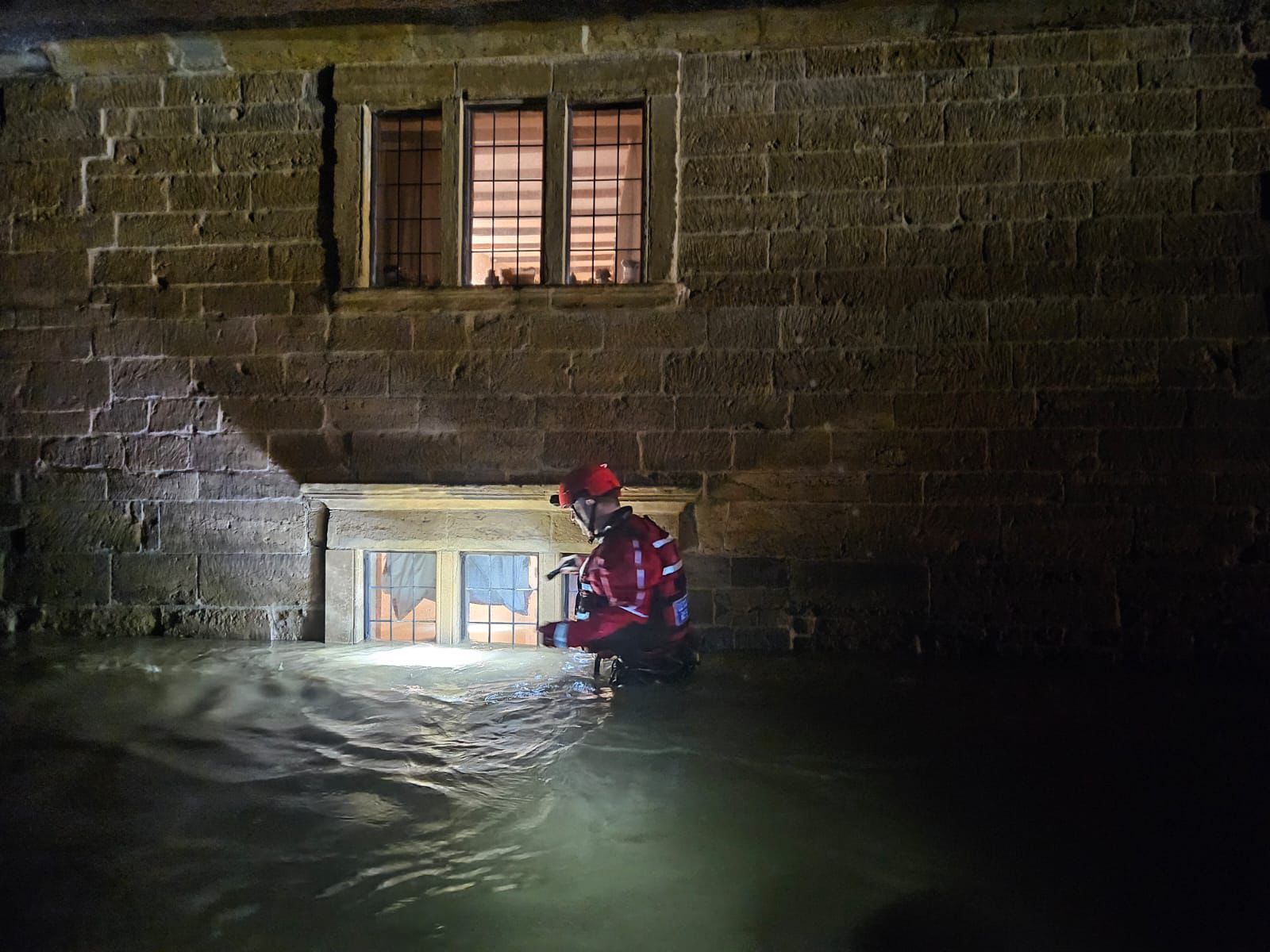Published 26 November 2024
NFCC responds to the flooding resulting from Storm Bert

Responding to the flooding resulting from Storm Bert, National Fire Chiefs Council (NFCC) Chair, Mark Hardingham, said:
“The severe weather and flooding seen in recent days has brought devastation to many communities. Our thoughts are with all of those affected, particularly the loved ones of those who have lost their lives, and those whose homes and businesses have been severely damaged.
“Throughout the storm, we have yet again witnessed the dedication and professionalism of fire and rescue personnel across the country. From those helping to evacuate residents and supporting local communities to those in control rooms taking hundreds of calls, they have all played a vital role in protecting people in some of the most challenging circumstances. They have also been joined by hundreds of volunteers, working alongside them to help their communities in their hour of need. I want to place on record my personal thanks to all of them for their service.
“Extreme weather events are increasing, and fire and rescue services will continue to play a crucial role in the response, but they need to be supported to do so. We continue to call on the Government to consult on a statutory duty for fire and rescue services in England, to ensure they have the tools, training and resources to prepare and respond”.
Advice
With more rainfall anticipated in the coming days, we would strongly urge anyone in the areas affected by the storm to visit the UK Government website where there is crucial safety information. This includes the following advice if you are about to be flooded or for during a flood:
- Turn off your gas, electricity and water supplies, if it’s safe to do so – do not touch an electrical switch if you are standing in water.
- Move your family, vehicles, pets and important items to safety, for example upstairs or to higher ground.
- If you have them, use flood protection products, for example flood barriers or air brick covers.
- Always follow advice from your local council or the emergency services if you are asked to evacuate. Not evacuating or delaying evacuation can put your life at risk. It can also endanger the lives of emergency responders if you later need rescuing.
- If you need to travel, check for flooding and get road traffic information. Always adhere to ‘Do Not Travel’ notices.
- Never walk through flood water. Flood water may contain sewage and hide rubbish, wreckage, uneven roads and pavements or broken drain and manhole covers.
- If you come across a flooded road while driving, turn around and find another route. The number one cause of death during flooding is driving through flood water.
Notes to editors
- Photo image 1 shows a volunteer from Northamptonshire Search and Rescue, who assist emergency services during such incidents, responding to flooding resulting from Storm Bert (credit: Northamptonshire Fire and Rescue Service)
- Photo image 2 shows personnel from West Yorkshire Fire and Rescue Service responding to flooding resulting from Storm Bert (credit: West Yorkshire Fire and Rescue Service).
- The National Fire Chiefs Council (NFCC) is an independent membership association and the professional voice of the UK Fire and Rescue Service. NFCC support fire and rescue services to continually improve, helping them to save lives and keep their local communities safe. NFCC are a charity and a membership association supporting and representing the UK Fire and Rescue Service. Founded in 1941, NFCC was established as a company and charity in 1998 as The Chief Fire Officers’ Association, transforming into the NFCC in 2017.
- NFCC’s Flooding Response Position Statement can be read here: https://nfcc.org.uk/our-services/position-statements/flooding-response-position-statement/

